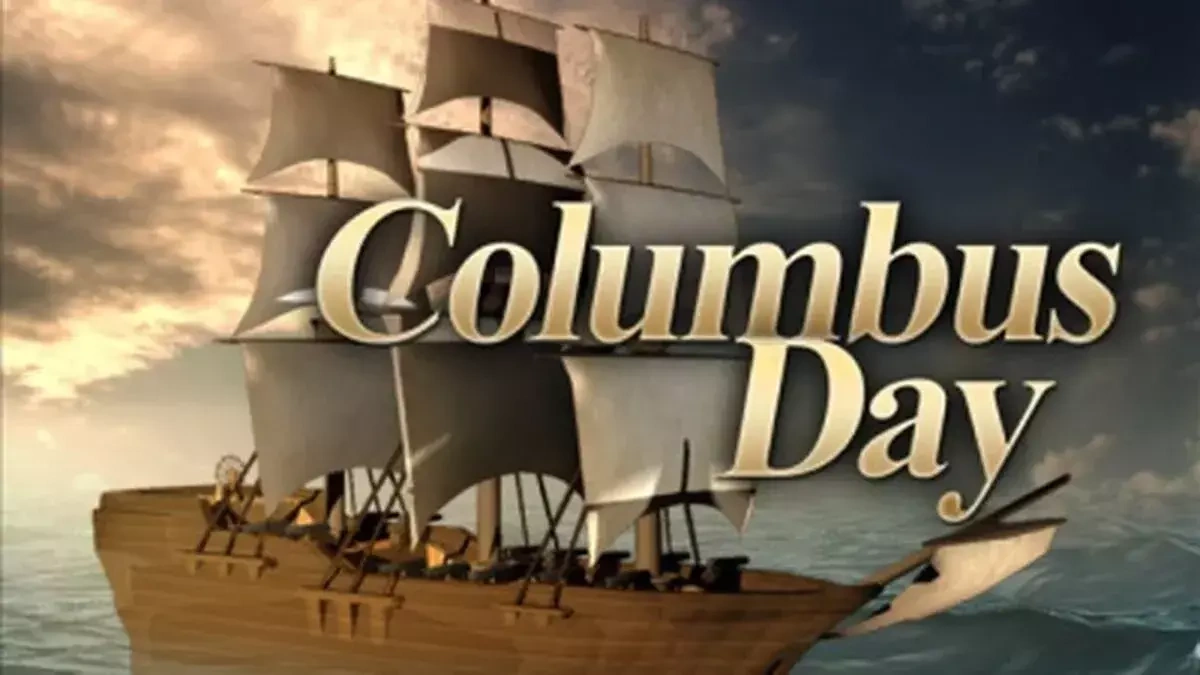October rolls around, and with it comes a day that sparks both celebration and controversy: Columbus Day . But it’s not as simple as a day off work anymore, is it? The narrative is shifting, and for good reason. What fascinates me is how a single day can hold so much history, pride, and pain, all at the same time. We need to dive into why.
The Shifting Tides | Why the Debate?

Let’s be honest, the story we were all taught about Christopher Columbus – intrepid explorer discovering a new world – is… well, a bit of a fairytale. A very sanitized fairytale. The reality is far more complex, involving colonization, exploitation, and the devastation of Indigenous populations . It’s this historical baggage that fuels the debate around Columbus Day.
The “Why” here is multi-layered. For many, Columbus represents European conquest and the beginning of centuries of oppression for Native Americans. Celebrating him, then, feels like a slap in the face. On the other hand, for some Italian-Americans, Columbus is a symbol of their heritage, a figure of pride who represents their contributions to the United States. It’s a clash of narratives, and understanding both sides is crucial.
So, here’s the thing: more and more cities and states are choosing to recognize Indigenous Peoples’ Day , either alongside or instead of Columbus Day. It’s a way of acknowledging the history and contributions of Native Americans, and of righting a historical wrong. This acknowledgement is becoming a widespread cultural shift across the United States.
The Rise of Indigenous Peoples’ Day | Acknowledging History
But, why is this shift happening now? There are several factors at play. Increased awareness of historical injustices, growing activism by Native American groups, and a general societal reckoning with the darker aspects of our past all contribute to this change. And honestly, it’s a welcome change.
The very first Indigenous Peoples’ Day was celebrated in 1992 in Berkeley, California. Think of it: while the initial shift started in California, its impact has grown monumentally and spread nationwide. A common mistake I see people make is believing that the holiday is about erasing history. It’s not; it’s about expanding our understanding of it, acknowledging the full story, the good, the bad, and the ugly. Celebrating Native American heritage is extremely important.
Navigating the Holiday | What Does it Mean for You?
So, how should one navigate this holiday? Well, that depends on your perspective. If you’re someone who traditionally celebrates Columbus Day celebrations , take some time to learn about the history of Native Americans. Read their stories, listen to their voices. Consider acknowledging the day with a moment of reflection on the impact of colonization.
If you’re someone who supports Indigenous Peoples’ Day, participate in events that celebrate Native American culture and history. Support Indigenous-owned businesses and organizations. Use your voice to advocate for policies that benefit Native American communities.
A key point: Remember that both days can be viewed in tandem. We can acknowledge the impact of Columbus’s arrival while simultaneously celebrating the resilience and contributions of Native peoples.
The Future of October’s Second Monday | Reconciliation and Remembrance
What does the future hold for this October holiday? My hope is that we move towards a more nuanced understanding of history, one that acknowledges the complexities and contradictions of the past. It’s not about tearing down statues or erasing names, but about adding context, telling the whole story. This holiday is about historical context , reconciliation, and remembrance.
The future, I think, lies in education. The one thing you absolutely must do on this day is to learn about the history of Columbus. It initially thought this was straightforward, but then I realized the history is not as widely known as I assumed. Consider visiting a local museum or library and diving deeper into your own research about Columbus and Native American issues . It’s time to move forward, armed with knowledge and understanding. World Economic Forum and similar organizations have released public statements discussing these very things.
Looking Ahead
Ultimately, the Columbus Day vs. Indigenous Peoples Day debate is about more than just a single day. It’s about how we remember and interpret history, and about how we treat each other in the present. Let’s use this as an opportunity to learn, to listen, and to build a more just and equitable future for all.
It is a time for introspection. It is a time to recognize the importance of cultural sensitivity . It is a time to remember that we are all part of a larger story.
FAQ Section
Why is Columbus Day controversial?
Columbus Day is controversial due to its association with the colonization and exploitation of Indigenous populations in the Americas.
What is Indigenous Peoples’ Day?
Indigenous Peoples’ Day is a holiday that celebrates the history and culture of Native American peoples, offering an alternative perspective to Columbus Day.
How can I celebrate Indigenous Peoples’ Day?
You can celebrate by attending local events, supporting Indigenous-owned businesses, and learning about Native American history and culture.
Are schools closed on Columbus Day and Indigenous Peoples’ Day?
School closures depend on the district and state. Some schools observe Columbus Day, while others observe Indigenous Peoples’ Day, or both. Check local listings for specific information.
What are some resources for learning about Native American history?
You can explore websites of Native American tribes, visit museums dedicated to Native American culture, and read books by Indigenous authors.
Are Columbus Day and Indigenous Peoples’ Day federal holidays?
Columbus Day is a federal holiday. Indigenous Peoples’ Day is not a federal holiday, though there is a movement for it to become one.




